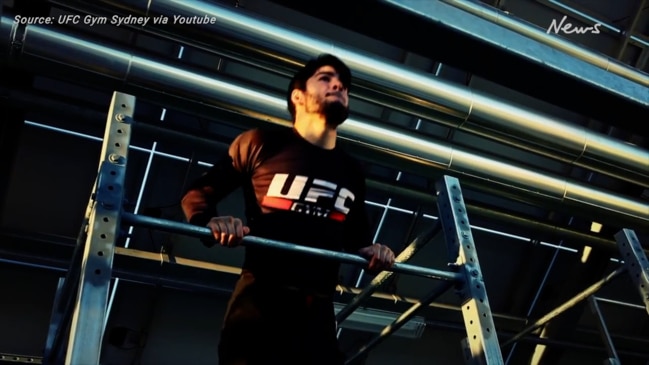UFC Gym Australia’s debt snowballs to $15m amid messy legal feud
An Aussie gym chain at the centre of a massive collapse is facing an eyewatering debt according to a report obtained by news.com.au.

Small Business
Don't miss out on the headlines from Small Business. Followed categories will be added to My News.
An embattled Australian gym chain under external administration has seen its debt snowball to more than $15 million.
On Monday, news.com.au revealed that the parent companies behind UFC Gym Australia had collapsed into administration in late May following a damning court judgment.
Late last month, on May 23, Ultimate Franchising Group Pty Ltd and Ultimate Franchising Group Properties Pty Ltd all went into voluntary administration.
These companies held the master franchise agreement for UFC Gym Australia and New Zealand, a mixed martial arts gym which at its peak had more than 10 fitness centres in Sydney, Melbourne, Perth and the Gold Coast.
The administration came a day after two companies behind UFC Gym were ordered to pay more than $5 million to three franchisees when a court found the company and its directors had “engaged in misleading and deceptive conduct” during the process of selling said franchises to them.
An administrator’s report lodged with ASIC and obtained by news.com.au shows that according to the appointed administrators, Rajiv Goyal & Christopher Johnson of insolvency firm Wexted Advisors, Ultimate Franchising Group Pty Ltd owes $15,654,000 to unsecured creditors.
A UFC Gym Australia spokesperson said the company had appointed administrators because it was the “best option available” to stabilise its financial situation and added it was “considering a range of options” following the court judgment.
One of the directors, Samer Husseini, is already seeking an appeal of the court judgment.

Of that $15 million debt, as well as owing money to the franchisees, $160,000 is owed to the NSW department of revenue.
There is a total of 62 creditors, according to proof of debt forms lodged with the administrators.
An additional $42,000 is owed to 10 employees for unpaid wages.
The Commonwealth Bank remains a secured creditor for a $670,000 debt.
UFC Gym Australia “may have been insolvent from as early as March 2023,” the administrators said in their report filed with the corporate regulator.
They added that early May after the court orders were delivered was a more “definitive date” of when the company likely started to trade insolvent.
The company “remains insolvent, so it is not appropriate for control of the Group to be handed back to the director,” they added.
The gym chain had reported a loss on trading in March, with the company experiencing a $100,000 deficit for the financial year.
Do you know more? Get in touch | alex.turner-cohen@news.com.au


Late last week, the gym was hit with another blow, as the court ordered it pay back an additional $600,000.
But now news.com.au can reveal that the damages have risen to $5.8 million, as the judge awarded one of the gym owners an additional $600,000, according to a court order from the end of last week.
In early May, Justice Tom Thawley from the Federal Court of Australia ruled in favour of the three franchises — UFC Balcatta in Perth, and also UFC Castle Hill and UFC Blacktown, both from Sydney — after a four-year legal battle.
The Balcatta gym was initially awarded total damages of $1.7 million while the Blacktown one’s total payout came to $1.9 million.
The Castle Hill gym’s damages originally stood at $2.3 million but this was revised down to $1.4 million as evidence emerged that the owner, Laziz Mirdjonov, had had used funds from the business on personal expenditures such as domestic and international travel, restaurants, luxury shopping and two Mercedes Benz.
But in a subsequent court order from June 22, the court ordered the damages “be varied to replace $1,485,643.10 with $2,077,373.60”.
That’s brought up UFC Gym Australia’s total debt owed to the three franchisees from $5.2 million to $5.8 million.


During the six-day civil trial, the judge found that the co-directors of UFC Gym Australia, Mazen Hagemrad and Samer Husseini, had misrepresented the gym’s financial position in order to sell franchises.
The directors claimed two of the franchises were profitable when they were actually losing money, told prospective buyers an estimated cost of starting up various franchises which was much lower than it turned out to be, that they promised there would 1200 members in the space of 10 months and that gyms would break even straight away, according to the court’s findings.
Mr Husseini is seeking to appeal these findings.
Mr Hagemrad, one of the co-directors, also claimed to prospective buyers that he had “preferential payments” in place that would make “fitting out” their venue into a UFC style gym considerably cheaper, according to court documents.
But really, Mr Hagemrad had an arrangement to receive a 10 per cent discount for UFC branded equipment which he would then sell onto franchisees at a higher price.
The court heard he obtained a dumbbell set for $9,500 but sold it on at $27,250, a 286 per cent price increase.
“This was more in the nature of profiteering from franchisees than securing preferential agreements for them with suppliers,” Justice Thawley said in the judgment handed down.

Evidence also emerged that two businesses involved in the fit-out stage for UFC franchises actually had personal links to Mr Hagemrad.
Mr Hagemrad’s brother-in-law operated Intrex Projects Pty Ltd, the “approved supplier” for all the UFC franchises.
In the trial, he denied receiving “kick-backs” through securing business for this entity.
Meanwhile, a company called Strategy Squared Pty Ltd imported UFC Gym equipment for franchises, and this turned out to be directed by his wife.
Mr Hagemrad’s wife was the director of Strategy Squared and he also held shares in the company.
He denied his business relationship with UFC Gym “enabled his wife to profit”.
Judge Thawley also declared that he did not find Mr Hagemrad “to be a reliable or credible witness” during the six-day trial.
This is not the first time Mr Hagemrad has been in court.
In 2018, the Federal Court found Mr Hagemrad “deliberately and dishonestly created fake sales” to sell a Subway franchise, located in Haymarket in Sydney.

Karim Girgis, the former owner of UFC Balcatta in Perth — a co-owner of one of the three franchises that took the company to court and won — feels “quite dirty” about the whole process.
“The payment (of $5.8 million) was due on the 22nd. They went into administration on the 23rd,” the 36-year-old told news.com.au.
The legal fees alone cost him and the other two business owners $850,000. he said.
He rues the day he ever heard of the UFC Gym franchise.
“I started off (franchising) in Jetts Fitness, and then F45, then UFC Gym offered me an opportunity, unfortunately,” he said.
Across the three franchisees — who had never interacted with each other prior to the court case — they spent $850,000 in legal costs.
“We’ve had to take debt, borrow money against property, stick to this business to keep it going, it’s been very very difficult,” Mr Girgis said.
His chances of recovering the money don’t appear promising, given the sheer amount of debt owed to unsecured creditors like himself.
A creditor’s meeting is being held on Wednesday.
The Balcatta and Castle Hill gyms have since rebranded to Rival Gyms, while the Blacktown enterprise has shut down in the wake of the court judgment, which also deemed their franchise commitments were voided.
alex.turner-cohen@news.com.au
Originally published as UFC Gym Australia’s debt snowballs to $15m amid messy legal feud





